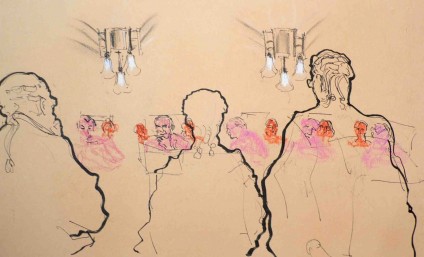[contextly_auto_sidebar id=”hK5EJ53ikGFuh7n01VPm8ghEcgEfZTjm”]
Earlier this month I wrote that the CCRC should be given ‘the power to refer a case to the Court of Appeal where it considers that the conviction is against the weight of the evidence heard by the jury’ and that legislation ‘strengthening the position of the CCRC as the filter for the Court of Appeal in these especially difficult cases could be a game-changer’. The article (see HERE) was written in the context of the Justice Select Committee’s inquiry into the CCRC now entering its final stages with the report expected next month.
- This article and the earlier article appeared in Criminal Law & Justice and they are both reproduced with their permission
I have now (belatedly) come to the conclusion that new legislation is not needed because the Commission already has that power under s.13(2) of the Criminal Appeal Act 1995. Section 13(2) gives the CCRC the power to refer a case to the Court of Appeal where there are ‘exceptional circumstances’. The CCRC has never used this power as the basis for a referral of a case to the Court of Appeal and, although its existence has of course been known and often referred to, I have never regarded it as of more than marginal importance. One urged the CCRC to use it where appropriate but I at least did not regard the subsection as of considerable potential significance.
Last week I did what I should have done long before.
I went to the library to look up what was said when the Criminal Appeal Bill was going through its parliamentary stages. I found to my surprise that s.13 (2) was not in the bill until the absolutely final stages of the bill’s progress. The bill had gone through all its stages in the Commons and Second Reading and the Committee stage in the Lords before it was even in contemplation.
The suggestion that such a subsection might be included was made during the Report stage by the Tory Minister, Baroness Blatch. After explaining that she could not accept an amendment proposed by a Labour peeress, the Minister continued:
‘Although I see difficulties with this amendment, I do understand the force of some of the concerns which the noble Baroness has expressed. In particular, it is not at all the intention of this Bill to prevent the courts from receiving a reference in any case where there is substantial ground for them to look again at a conviction. I agree with the view that in setting reasonable criteria for references we should be doubly careful to ensure that references are not inadvertently prevented where injustice would result. However exceptional, there may be circumstances in which a conviction plainly ought to be referred.’
HL Hansard, vol.565, June 6, 1995, col.571
She stated that she intended to introduce a Government amendment to give effect to that view on Third Reading, which she duly did. Speaking to that amendment, she said:
“Clearly in setting reasonable criteria for references we must ensure that references are not precluded in circumstances where injustice would result.”
HL Hansard, vol.565, July 3, col.960
The amendment was agreed by the Commons on 17 July, two days before Royal Assent. The Minister, Mr Nicholas Baker, said that it would permit a reference in the exceptional case where there were ‘compelling reasons’.
What emerges from the history is that s.13(2) was introduced at the last moment with the specific conscious and articulated objective of giving permission exceptionally for a referral even though there is nothing new. The ‘real possibility’ test under s.13(1) still applies but a referral can be made where there are ‘compelling reasons’ sufficient to create a real possibility of the appeal succeeding. ‘Compelling reasons’ is open-ended.
In my recent article, I urged that the Commission be given the power to refer a case where it has a serious doubt about the verdict. It is clear that according to the intention of Parliament, clearly expressed during the passage of the Bill by the Minister in the House of Lords and the Minister in the House of Commons, that the Commission in fact already has that power. It only has to use it.
When the CCRC is persuaded that a case merits referral it usually succeeds in finding something new that justifies a referral under s.13(1). There will therefore not be many cases where a referral is only possible because of ‘exceptional circumstances’ by way of s.13(2). But s.13(2) backed by the evidence from Hansard provides full cover for a case where nothing new has been found.
Of course, the successful outcome of a referral to the Court of Appeal requires that the Court be receptive. For more than 100 years, since the 1907 Criminal Appeal Act, the appeal court has notoriously shown itself extremely reluctant to overturn jury verdicts. No one has yet thought of a way of overcoming that reluctance.







